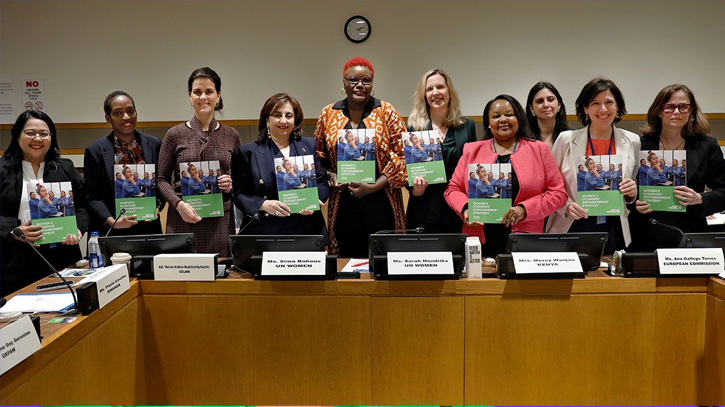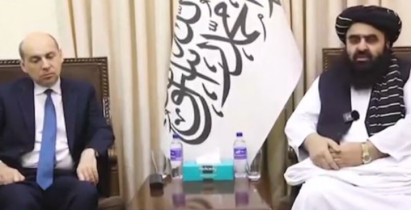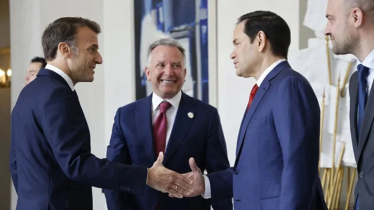
Photo : Collected
Women leaders at the 68th session of the Commission on the Status of Women (CSW68) have highlighted the urgent need for feminist financing to advance gender equality and women's economic justice and rights.
The session, which concluded on Friday (22 March), emphasized the importance of increasing investments in gender equality to ensure sustainable development and reduce women’s poverty and violence against women globally.
During the twelve-day session, women leaders and civil society members focused on robust measures to strengthen financing, institutions, and social protection systems with a gender perspective. The UN Secretary-General's report to the Commission highlighted that 10.3 percent of women currently live in extreme poverty, underscoring the need for accelerated progress to achieve the Sustainable Development Goals by 2030.
In such a situation, women's economic empowerment was a central theme at CSW68, with discussions highlighting its crucial role in enhancing autonomy, security, and sociopolitical lives. Closing all gender employment gaps could lead to a nearly 20 percent increase in GDP per capita and the creation of almost 300 million jobs by 2035 through investments in care services.
At CSW68, Generation Equality hosted an event highlighting feminist financing and calling for collective action for women’s economic justice.
“If we are not ambitiously proactive, women’s economic empowerment and autonomy will be continuously stalled,” said UN Women Executive Director Sima Bahous.
She underscored the need for governments to prioritise gender-responsive financing and gender equality, especially in light of recent cuts in official development assistance to support women's rights organisations and movements.
“Women’s economic empowerment is not only critical to pave the way for individual freedoms,” said Sofia Calltorp, Sweden’s Ambassador for Gender Equality, “it is essential to many of the global and domestic challenges we face today, and to achieving the Sustainable Development Goals.”
“May we be the generation that will push for funding to come,” said FEMNET Executive Director Memory Kachambwa. “Funding that is trust-based, flexible, multi-year, and sustainable—and feminist funding models that actively listen and respond, with conviction and action.”
Some other female leaders opined that expanding social protection programmes and services, such as childcare, parental leave benefits, and pensions, can help significantly reduce women's poverty and improve their access to paid work. However, only 26.5 percent of women globally have comprehensive social security coverage, highlighting the need for increased investment in this area.
UN Women's side event on financing social protection and care systems stressed the importance of investing in these measures to address today's challenges and advance gender equality.
CSW68 also highlighted the importance of community health insurance, cash assistance through digital means, and cash-for-care mechanisms to reduce poverty and inequality, especially in crisis-prone areas.
The CSW68 Youth Forum, held on 15–17 March 2024, closed with renewed commitments and actionable insights. Aligned with this year’s Commission on the Status of Women priority theme, “Accelerating the achievement of gender equality and the empowerment of all women and girls by addressing poverty and strengthening institutions and financing with a gender perspective,” the Forum stood as a beacon for young voices ready to echo through the halls of global decision-making.
The Youth Forum brought together a vibrant mosaic of more than 400 young leaders from across the globe, ranging from activists to experts with a rich diversity of experiences, including adolescents, young people with disabilities, indigenous youth, LGBTIQ+ youth, and more, adding depth to the dialogue on poverty eradication and galvanizing efforts to push forward for gender equality.
“It is high time that we stop thinking about you as the leaders of tomorrow and start working with you as the leaders of today”, said UN Women Executive Director Sima Bahous.
The two-week session, the largest UN gathering on gender equality, brought together world leaders and representatives from civil society organizations. The participation of young people, including adolescent girls, highlighted the importance of integrating critical youth perspectives in the official sessions of the CSW.
Messenger/Mumu








